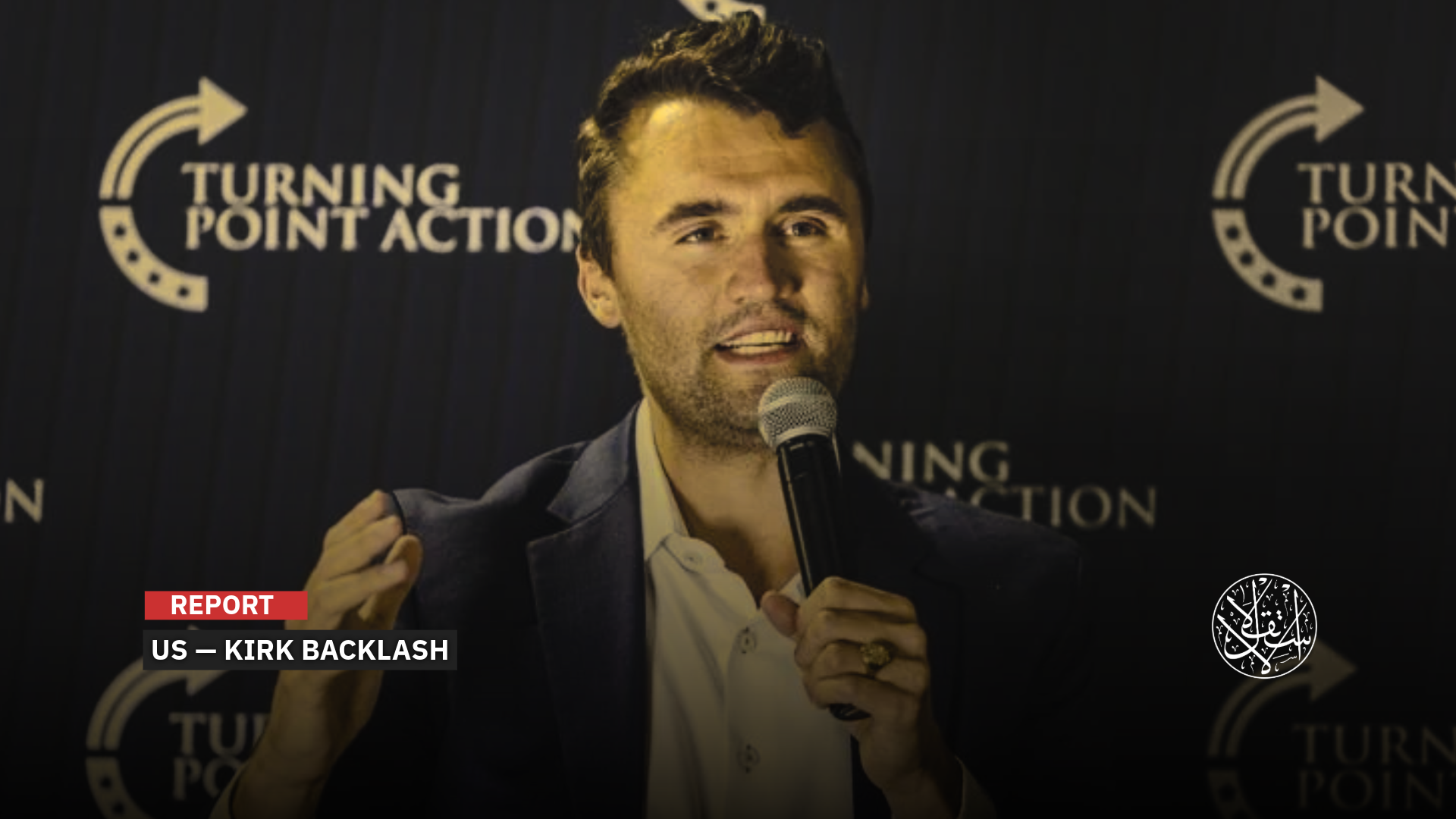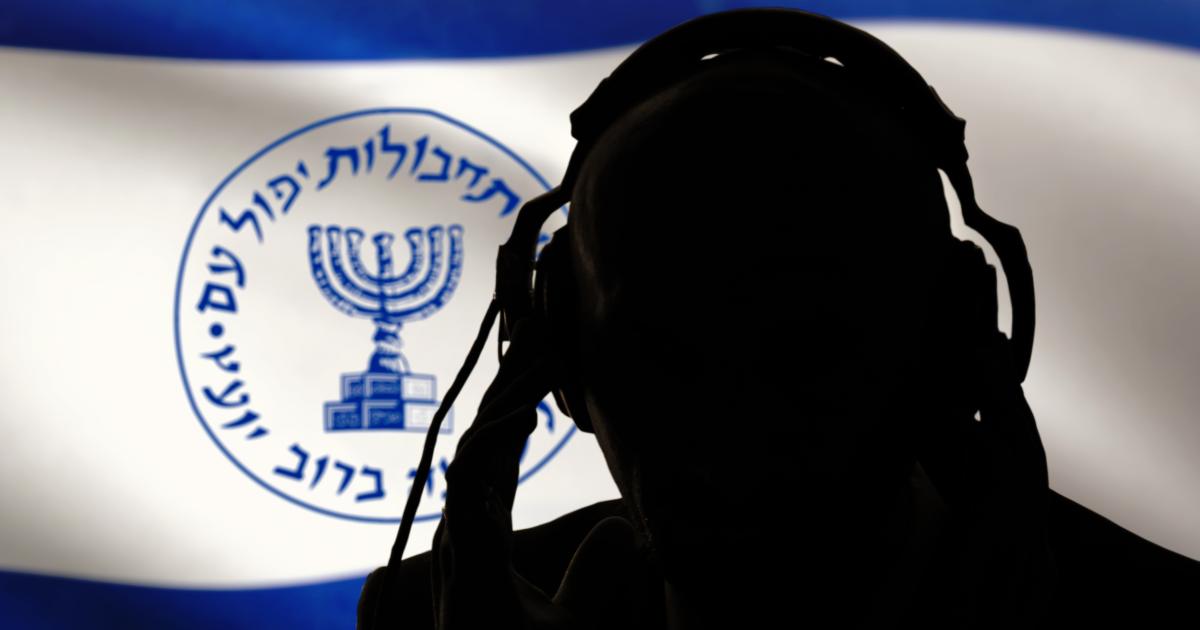Kirk’s Blood on the MAGA Stage: Why Accusations Are Pointing to Mossad

Kirk confided to a close associate that he feared “Israel” might move to kill him.
On September 10, 2025, the campus plaza at Utah Valley University (UVU) in Orem, Utah, became the scene of one of the most shocking incidents in recent American political history.
As far-right activist Charlie Kirk, 31, a key supporter of President Donald Trump and co-founder of the conservative youth organization Turning Point USA, addressed a crowd of around 3,000, a gunshot rang out. The bullet struck him in the neck, killing him instantly in front of his supporters.
Within minutes, the news exploded across political and media circles. The chaos, bloodshed, and screams that followed marked what many fear could be the beginning of a new era of politically motivated violence in the United States.
Two days later, on September 12, authorities named the suspected shooter as Taylor Robinson, a young man previously unknown to the public. He was turned in voluntarily to the FBI by members of his own family.
Preliminary investigations revealed that Robinson had etched slogans onto the bullet casings he used, raising suspicions that the act was anything but random.
Photos released by police showed the suspect wearing a black T-shirt emblazoned with the American flag, an eagle, and the words "Land of the Free, Home of the Brave."
Utah Governor Spencer Cox revealed that the suspect had been deeply influenced by leftist ideology.
But more significant than the identity of the killer was the firestorm of controversy that erupted on social media within minutes of the shooting, as an unexpected accusation began to spread: “The Mossad did it.” The claim stood out from the usual ready-made narratives that typically accompany political violence in the United States.
While many had anticipated fingers would be pointed at the American left, an alternative and surprising theory began circulating among right-wing accounts.
What was striking was that those endorsing the theory of Israeli Intelligence involvement were themselves American conservatives aligned with the Trump base, including several high-profile figures on X.
Their argument hinged on the belief that, despite Charlie Kirk’s well-known support for “Israel” and his vocal backing of the war on Gaza, he had recently shown signs of opening the door to voices within the pro-Trump MAGA movement that had begun questioning Israeli influence in U.S. politics.
The attack struck at the heart of the MAGA movement, which today represents one of the most energized factions within the Republican Party, and it has reignited a deeper question: Is the American right beginning to reassess Washington’s relationship with “Israel”? And could that lead to an unprecedented internal rupture?

Afraid of “Israel”
In a striking twist, “Israel’s” name found itself at the center of accusations following the killing of Charlie Kirk, despite his long-standing role as one of its staunchest defenders within the American conservative movement.
American influencer Harrison Smith reposted a message on X claiming that a close associate of Kirk had told him the conservative activist believed “Israel” might be willing to kill him if he “turned against it.”
Another account, operating under the provocative name “Jeffrey Epstein Worked For Israel,” wrote that in the past two weeks, he saw a post saying Charlie Kirk was afraid “Israel” would kill him if he disobeyed its pro-Zionist orders.
He suggested that the shooter appeared carefully chosen, implying the attack was anything but random.
The irony, of course, is that Kirk was never an adversary of “Israel,” but rather a steadfast ally for many years. However, in recent months, he had begun to express a degree of distance from certain Israeli policies, particularly as he observed a shift among younger Republicans who appeared increasingly critical of unwavering support for “Israel.”
In August 2025, Charlie Kirk hosted a debate with Gen Z students as part of a Turning Point USA event, during which he discussed the growing skepticism surrounding the U.S.– “Israel” alliance.
According to Al-Estiklal, “As you’ll see, they don’t hate Israel or the Jewish people, but they are skeptical of the current relationship and want to make sure America’s leaders are putting their own country first.”
Kirk explained that he had worked hard to persuade donors, conservative politicians, and “pro-Israel” allies to understand this generational shift.
Observers also recalled an incident dating back to 2023, when Kirk publicly called on “Israel” to provide clear answers after it bombed the historic Saint Porphyrius Orthodox Church in Gaza.
The airstrike killed Christian civilians and destroyed part of the 1,700-year-old building, and Kirk’s remarks at the time sparked controversy within right-wing circles.
Abdelrahman Youssef, a researcher specializing in American affairs, wrote on Facebook that some Americans’ willingness to suspect Israeli involvement stems from the perception that Kirk had begun aligning with a faction within the MAGA movement that questions the extent of Israeli influence in U.S. politics.
That faction, led by figures like Republican Congresswoman Marjorie Taylor Greene, a close Trump ally, has been gaining traction within the conservative grassroots base.
According to dozens of threads on X, Kirk was preparing to use his platform to elevate voices known for their criticism of “Israel,” an act that some of his own supporters described as a “dangerous step” that may have prompted “Tel Aviv” to move against him.

MAGA and “Israel”
The MAGA movement—short for Make America Great Again—is widely recognized as the most prominent political force to emerge around former President Donald Trump since his first campaign in 2016.
The movement, which boasts millions of supporters and heavily influenced Charlie Kirk, is often portrayed in liberal discourse as a radical current embracing a quasi-fascist ideology.
But to its members, MAGA represents an attempt to restore what they see as America’s lost greatness, which, in their view, has been eroded by immigration, multiculturalism, and globalization.
For years, “Israel” enjoyed near-unconditional support from Trump’s base. White evangelical Christians, the backbone of the MAGA movement, including figures like Kirk, have long stood among “Tel Aviv’s” most loyal allies in American politics.
Yet, since 2023, signs of a deeper shift have begun to emerge. Voices from within MAGA itself have started to challenge that alliance and openly question the scale of Israeli influence over U.S. decision-making.
An analytical piece published by The New Arab on August 13, 2025, by American researcher Giorgio Cafiero, CEO of Gulf State Analytics, explored this phenomenon.
Cafiero described the shift as “accelerating and unprecedented,” noting that criticism of “Israel” was no longer coming solely from the progressive wing of the Democratic Party, but increasingly from within the populist right aligned with Trump.
Republican Congresswoman Marjorie Taylor Greene has become a symbol of that transformation. She recently launched a scathing attack on AIPAC, the most powerful “pro-Israel” lobby group in Washington.
“There is nothing left to talk about with the left. They hate us,” Greene wrote on the social platform X. “To be honest, I want a peaceful national divorce.”
“Our country is too far gone and too far divided, and it’s no longer safe for any of us,” she added.
Greene went further, directly accusing “Israel” of committing genocide in Gaza, and calling for AIPAC to be registered as a “foreign lobbying organization”, a move that underscores the growing resentment toward Israeli influence within the Trump base.
Amid this increasingly fraught landscape, Charlie Kirk’s name stood out as one of the most affected and influential voices in the MAGA movement, particularly among conservative evangelical youth and college students.

Balance of Power
Kareem Rizk, a U.S.-based activist, believes that the fact right-wing and conservative voices are pointing to “Israel” and Mossad in the aftermath of Charlie Kirk’s assassination marks a true reversal in political dynamics, noting that such figures would typically blame the left, Muslims, immigrants, or foreigners.
Even the governor of Utah himself made a now-famous remark that he spent 33 hours praying the shooter wouldn’t turn out to be a white American. That’s the nature of the deeply rooted racist mindset within the American right,” he told Al-Estiklal.
Rizk explained that some analyses have gone so far as to frame the incident as a full-fledged conspiracy, with the suggestion that the killer may have been a Zionist agent.
The theory argues the assassination was designed to pin the blame on leftists and minorities, fueling public anger toward them and, in turn, strengthening support for Trump and his extremist policies.
He noted that others believe the killing was indeed carried out by Zionist hands, as Kirk had recently begun lending an ear to voices critical of “Israel.” That, according to Rizk, raised fears that he might be shifting away from his traditionally “pro-Israel” stance, especially given his large following among young conservative evangelicals.
Rizk argued that the political and social “madness” currently gripping the United States is deeply tied to the persona and policies of Donald Trump, whom he described as psychopathic.
He pointed out that Trump has deployed military forces in several states out of fear of coups, arrested opponents, deported thousands of migrants, and cut funding to universities and institutions that do not align with his views.
On the international front, Trump has adopted foreign policies that have alienated traditional U.S. allies, while offering unconditional support to Israel in its wars and acts of violence against Palestinians in Gaza and the West Bank.
“America today is living through an unprecedented level of societal, ideological, and political division,” Rizk said, “something we haven’t seen since the Civil War in the 19th century, or the McCarthy era of the 1950s.”
He added that “some analysts believe this division could indeed lead to a new civil war,” and went on to argue that Trump himself bears primary responsibility for Kirk’s assassination, through what he described as reckless policies and behavior.
“These are the same people who may end up pushing the United States toward civil war,” he concluded. “As I always say, people follow the religion of their rulers, and if the ruler is mad, then madness and extremism will prevail among the people. The fall of nations always begins from within, when incompetent tyrants come to power.”
Sources
- The MAGA Movement... The Political Organization Behind Trump’s Campaign Slogan [Arabic]
- Giorgio Cafiero: Why Is the MAGA Movement Turning Against Israel? [Arabic]
- “Catch This, You Fascist”... Who Is Tyler Robinson, the Killer of Charlie Kirk? [Arabic]
- His Father Surrendered Him... Who Is the Killer of American Influencer Charlie Kirk? [Arabic]
- Did Israel Turn Against Charlie Kirk? Americans Accuse Tel Aviv of Being Behind His Killing [Arabic]









